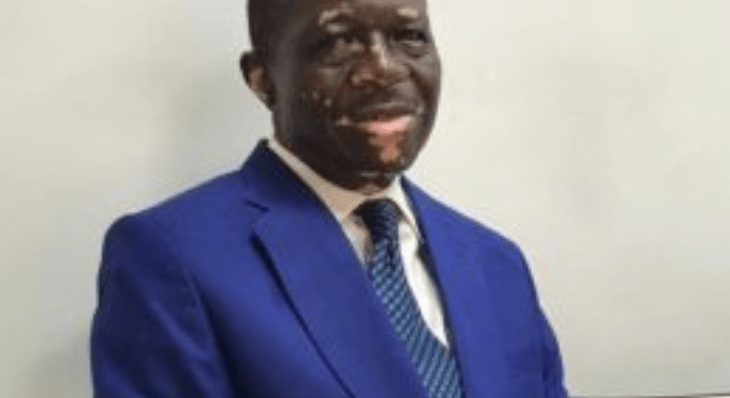In part one of this intervention, which was published early in the week, effort was devoted to searching for some missing links, which the author believes, if found, could make the story of the Sixteen Fulani hunters that were lynched at Uromi, in Edo State, on March 27, 2025, a more understandable presentation.
In so doing, the author is just putting up a good show of coming into conformity with our own Chimamanda Ngozi Adichie’s “danger of a single story”, because until now the story of the Sixteen Fulani hunters have been presented from “a narrow line” point of view.
For example, until this intervention, the story had remains within the single lane context of “innocent hunters, of Northern Nigerian extraction”, returning from Rivers State, where they practised their hunting skill, and heading to their State of origin in Kano, for the Sallah festival, were ambushed and killed, just like that, at Uromi, in Edo State.
Whereas there must be two sides to each coin, but here, in this event, the Nigerian Security Community did not care to look for the other side of the narration, at least if only for the purpose of balancing the trajectory.
It is this failure, by the Nigerian Security Architecture, in balancing things that prompted this investigative and reportage intervention.
However, let it be repeated here again, that whatever lost link, or links, this adventure can restore into this voyage of discovery, the fact of condemning the extrajudicial killing of those hunters in Uromi, ditto of any Nigerian anywhere, remains sacrosanct, and this it is for ever. Now, let us move to looking for the missing links, please.
In Part One of this work [you can download it from my website [www.godwintheguru.org] we were able to establish three routes through which travellers coming out of Rivers State, by road, can go through in arriving Kano State, and the conclusion was drawn that the one road that passes through Uromi/Ubiaja is the least most attractive route to follow. And the reasons were well articulated in the previous work.
Now, let us beam our light on other missing links that, if properly probed, could associate these men to other ventures – which might include kidnapping probably.
One, at the place and point the Vigilante Group apprehended them, it was confirmed by eyewitnesses, that the “hunters” were the first to show sign of aggression. And this was when one of the Vigilante men attempted boarding the vehicle to conduct a thorough search on what the cargoes in the vehicle were. Such simple exercise was resisted by the hunters. And one of them – the hunters, drew a dagger [knife] and stabbed the Vigilante man.
Two, it was said that there were bags, or sacks, fully loaded with Naira Notes inside the vehicle that was conveying the hunters, and this was attested to by Abubakar Shehu, 20, one of the hunters who survived the deadly encounter, when he spoke to the BBC Pidgin program.
We might want to agree that the technology of differentiating Naira Notes collected from sales of bushmeat, and Naira Notes collected from ransom payment might not be available to the Vigilante Group at that point in time.
Three, the dilemma of guns loaded in the hunters’ conveying vehicle – be they Dane, Local, Double Barrel or Automatic Raffles, would mislead, even Professional Armourers in arriving the conclusion of what such “equipment of mass destruction” were meant for. If such evaluation would be a debacle for Armament Professionals, then a Ragtag Vigilante Group – ill-trained and ill-equipped, could easily be forgiven about what its opinion of such cache was.
Four, we need to go through the story, or testimony, of the driver of the conveying Truck, whom unfortunately, was never identified by name. We shall thereafter return to evaluate all he said, as such would be a very good exercise in helping to have some of those missing links in place. Read his account below:
The truck driver who survived the lynching of 16 travellers of Kano State extraction, by a vigilante group in Uromi, Edo State, has recounted the harrowing experience, refuting claims that the incident was tribal-related.
The incident occurred in the early hours of Friday when the travellers, believed to be hunters, were journeying from Port Harcourt, Rivers State, to Kano for the Eid-el-Fitr celebration.
The truck driver, whose name was not revealed in a viral video circulating online, stated that he was transporting Dangote Group’s goods to Obajana in Kogi State when he encountered the hunters at Elele, seeking a ride to the northern part of the country.
“I initially refused to give them a ride because it was against my company’s policy. But after driving for about two kilometres, I felt guilty for abandoning them. After all, they are my fellow Northerners from Kano State, so I went back and picked them up,” the driver said.
According to him, the journey was peaceful until they arrived at Uromi, where they were stopped by a vigilante group. The leader of the vigilante allegedly questioned the driver about his cargo and the identity of his passengers. Despite presenting the waybill for the goods, the vigilante commander reportedly expressed suspicion about the hunters, particularly due to their weapons and dogs aboard the truck.
“He said he (Vigilante Leader) didn’t trust them and demanded they come down. As soon as the crowd saw their guns and dogs, they attacked us,” the driver narrated. “The commander told the crowd that we were kidnappers and Boko Haram, and they started beating us mercilessly.”
The driver, alongside two others identified as Haruna, an older man, and a younger man, were reportedly handcuffed by the vigilante commander and taken to a nearby police station. The vigilante informed the police that they had captured suspected kidnappers, leading to their immediate detention.
“By the time he went back to the scene, the mob had already killed 16 people,” the driver revealed, his voice filled with anguish.
He, however, categorically dismissed suggestions that the incident was a tribal clash. “This was not a tribal clash”.
Let us interrogate his narration.
He said he met the hunters at Elele, on his way from Port Harcourt in Rivers State, to Obajana in Kogi State, conveying cargoes belonging to his employer – Dangote Cement. He also admitted that he refused to pick them – the hunters, because such act was against the Rules and Regulations of his employment. He drove away, without picking them, according to his admission, until after 2 kilometres, when he developed guilty conscience of not helping his brothers from the North, that he turned back to go and pick them, without consideration for the cost of diesel.
This and more were his admission. To balance our evaluation of his presentation, it would be befitting to use what he did not say to interrogate what he said the perimeter of his presentation. And what are those things that he did not say?
The driver refused to tell us what the negotiation between him and the hunters was when he first met them at Elele before driving off without carrying them. Could it be about the price of transportation offered by the hunters? Or could it be the types of loads he discovered with the hunters, e.g guns, dogs and money? Or his suspicion that these people might not be hunters, but instead, looked like bandits/kidnappers?
Then on returning back, to pick his Northern brothers after his conscience pronounced him guilty, according to his confession, could the decision be based on the quantum of the money offered by the hunters, ab initio?
Then, most importantly, can this driver say emphatically that he did not see the contents of those cargoes – guns, dogs and money, being loaded into his Truck at the point of loading?
Profiled and seasoned Police Investigators I worked with in my younger days as an investigative journalist, would have asked him – I mean the driver, to “renavigate his story”. But, most unfortunately, such asset of vigour and deep-rooted investigation of those good olden days are gone with the wind. I missed them even as l write this piece.
The last and final attempt of laying hand on, yet another missing link on this saga remains the prevailing atmosphere of criminality – albeit notorious kidnapping by Fulani herdsmen around that zone of Uromi and environs before the 16 hunters arrived Uromi.
Permit me to repeat the story I told in Part One of this exercise early this week, about the Kidnap of a pregnant woman, under severe labour pain, being escorted by her husband to another village maternity home in the middle of the night. The woman delivered inside the forest the Fulani Terrorist kidnappers took her and her husband into. Immediately after delivering, their kidnappers fed the newborn baby and the placenta to their dogs, and continued the trek further into the forest, kept them there until huge ransom was paid.
A fallout of this venture was the fact that the couple kept the memory of their abductors in them.
This saddest event in the annals of human history happened within the Uromi axis of Edo State, not too long before the “arrival of these strange hunters” from Rivers State. And that is if they were hunters actually and coming from Rivers State really.
Another pointer of this author’s swagger in looking for the last circle of the missing link would be the Igueben train station kidnapping, which took place on January 8, 2023, where 32 people – including some Station’s personnel, were taken away into the forest by the Fulani Terrorists. A woman, with her baby later escaped from the kidnappers, and this woman, plus many others that came out of captivity after ransom had been paid, carried with them memory of those kidnappers that tormented them savagely in the forest.
There are revealing facts that due to the frequency of kidnapping in this axis of Edo State before, some locals – including some of those kidnapped victims of the immediate past, were able to identify some of the hunters as kidnappers in previous kidnapping operation.
If this is to be true, which can be confirm through diligence investigative work by Nigerian Security Agencies, then the route to where we arrived, at Uromi, in Edo State, on that bloodsucking day of March 29, 2025, would have fully been identified – fait accompli.
Permit me, ipso facto, to close this interrogation with these two beautifully exciting questions:
What if the Uromi 16 were not hunters? What if the journey of these so-called hunters did not originate from Rivers State?

